Coronavirus latest: US warned about reopening too soon, Singapore cases hit new record
- Singapore is battling a new wave of infections among its migrant workers, and now has the highest number of Covid-19 cases in Southeast Asia
- Spain’s daily death toll has dropped below 400, while small shops opened in Germany as it eases restrictions
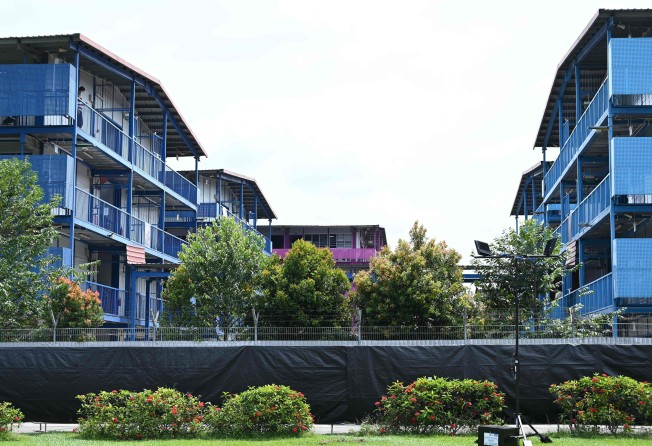
Singapore reported 1,426 new infections on Monday, a record jump in Covid-19 cases as it battles a new wave of infections in dormitories housing migrant workers.
The total number of cases in Singapore now stands at 8,014, the highest in Southeast Asia.
The Ministry of Health said 1,369 of the cases, the “vast majority” of them, were work permit holders living in dormitories, while 18 new patients were Singapore citizens or residents. There were no imported cases.
Infections are expected to continue increasing as authorities continue mass testing of migrant workers. There are more than 320,000 migrant workers in Singapore doing jobs shunned by citizens, in industries such as construction, estate maintenance and engineering.
The hundreds of thousands of migrant workers living in cramped conditions have become the city state’s latest challenge in its battle against Covid-19, with this group making up some 76 per cent of its total infections.
Neighbouring Malaysia on Monday recorded 36 new Covid-19 cases, the lowest daily number since its partial national lockdown began on March 18. The country has reported 5,425 infections with 2,041 active cases. The health ministry also announced 98 recoveries, bringing the total to 3,295, a recovery rate 60.7 per cent. No deaths were recorded on Monday.
Elsewhere, hard-hit European nations and the US epicentre New York reported headway in their battle against the deadly pandemic.
Governments across the world are now debating how and when to ease lockdowns that have kept more than half of humanity – 4.5 billion people – confined to their homes and crippled the global economy.
Mounting evidence suggests that the lockdowns and social distancing are slowing the spread of the virus. That evidence has intensified planning in many countries to begin loosening curbs on movement and easing the crushing pressure on national economies.
But social restrictions imposed to curb the virus must be eased in phases and don’t spell the end of the epidemic, WHO Director-General Tedros Adhanom Ghebreyesus said.
“It’s just the beginning of the next phase,” he said at a virtual meeting of G20 health ministers. WHO will publish its second response plan with an estimate of resources required for the next phase.
Here are the latest developments:
US warned about reopening too quickly
The top infectious-disease expert in the United States has a message for protesters who are ignoring their governors’ stay-at-home orders and calling for him to be fired over his guidelines. “This is something that is hurting from the standpoint of economics, from the standpoint of things that have nothing to do with the virus,” Anthony Fauci said on Monday.
He added that “unless we get the virus under control, the real recovery economically is not gonna happen. So what you do if you jump the gun and go into a situation where you have a big spike, you’re gonna set yourself back”.
Fauci said as painful as it is to follow guidelines of gradually phasing into a reopening “it’s gonna backfire. That’s the problem”.
Meanwhile, New York City Mayor Bill de Blasio said on Monday that it could take weeks if not months before the country’s most populous city reopens due to a lack of widespread testing, even as officials elsewhere began rolling back restrictions on daily life.
“We could get there but we can’t do it without widespread testing and so far the federal government still can’t get their handle on that,” De Blasio said, adding that ending social distancing too soon could rekindle the virus.
The United States has by far the world’s largest number of confirmed coronavirus cases, with more than 750,000 infections and over 40,500 deaths, nearly half of them in the state of New York.
Spain’s daily death toll drops below 400
Spain said 399 people died of Covid-19 over the past 24 hours in what was the lowest daily number of deaths in four weeks.
The latest figures, which showed a slight drop from Sunday when 410 people died, brought further relief to a country which has suffered the third-highest number of virus deaths in the world after the United States and Italy.
“Today for the first time we’ve fallen under 400 deaths, although it’s only a little lower [than Sunday], these figures give us hope,” said Fernando Simon, the health ministry’s emergencies coordinator. “These are very encouraging figures.”
The data also showed cases rising to 200,210 in Spain, which ranks second in the world in terms of infections after outpacing Italy at the start of April. But it remains well short of the United States which has so far counted more than 750,000 cases and well over 40,000 deaths.
Spain is also proposing members of the European Union create a fund with up to 1.5 trillion euros (US$1.63 trillion) to help the bloc’s countries worst hit by the new coronavirus pandemic.
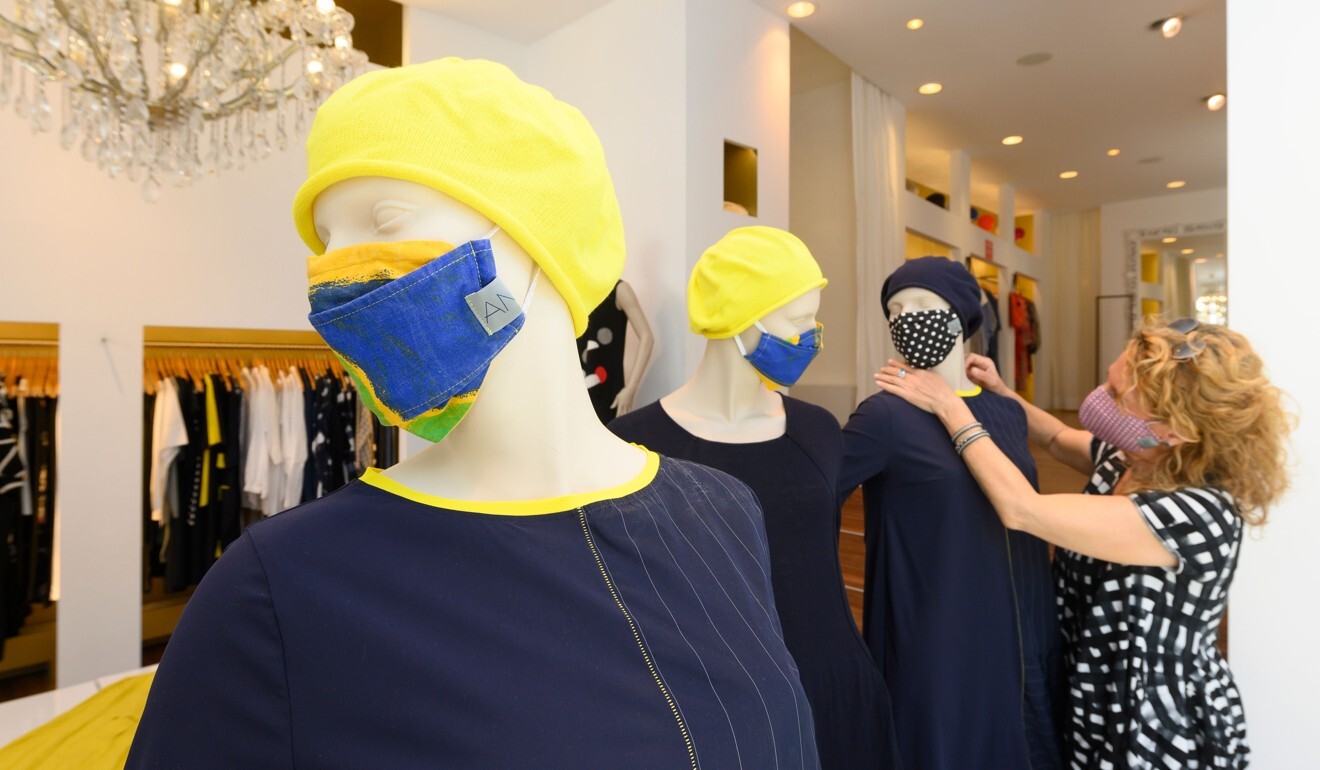
Germany eases restrictions on shops
Some small shops in Germany reopened on Monday as the country took a cautious step toward returning to normal, though Chancellor Angela Merkel issued a stark warning against complacency in the face of the pandemic.
From florists to fashion stores, most shops smaller than 800 square metres were allowed to welcome customers again in much of Germany, in a first wave of scaling back lockdown measures introduced last month.
Merkel said on Monday she was “greatly concerned” the public could let its guard down too fast, urging the public to maintain social distancing measures, and avoiding gatherings of more than two people, voicing her “scepticism” and “huge concern” over the population’s discipline.
The number of coronavirus cases in Germany rose by the least this month, with 2,018 new infections, taking the total to 145,742. The number of fatalities rose by 104, the lowest since April 1, to 4,642.
The state of Bavaria plans to make wearing masks, or some other form of face covering, compulsory in shops and public transport starting next week. It’s the most populous German region to take the step so far.
Outbreak at testing centre in the Philippines
Forty employees of the Philippines’ main testing centre for coronavirus have tested positive for the virus that has killed more than 400 people in the country, the head of the facility said on Monday.
The infected staff of the Research Institute for Tropical Medicine (RITM) have been isolated to prevent further transmission, said Celia Carlos, head of the facility that has been processing tests 24 hours a day amid the outbreak of Covid-19.
“The first case is not involved in patient care,” she said. “When we investigated, he acquired the infection from the community and infected the other staff.”
The RITM has been processing up to 2,000 samples every day since last month. Sixteen other accredited testing centres across the country are able to conduct up to 300 tests a day, but this is still far from the government’s target of up to 10,000 tests daily.
The Department of Health reported 200 new confirmed cases of Covid-19 in the Philippines on Monday, bringing the country’s total to 6,459. It also recorded 19 more fatalities, making the death toll 428, and 613 recoveries.
New Zealand to ease lockdown
New Zealand will extend the lockdown measures in place to beat the coronavirus by a week, after which it will move to a lower level of restrictions, Prime Minister Jacinda Ardern said on Monday.
“New Zealand will move out of Alert Level 4 lockdown at 11.59pm on Monday April 27, one week from today,” Ardern said in a news conference.
“We will then hold in Alert Level 3 for two weeks, before reviewing how we are tracking again, and making further decisions at Cabinet on the 11th of May,” she said.
The Pacific nation of 5 million introduced its highest, level 4 lockdown measures in late March, under which offices, schools and all non-essential services including bars, restaurants, cafes and playgrounds were shut down.
The measures were tougher than most other countries, including neighbouring Australia, and have proved largely effective in containing the outbreak.
Just nine new cases of Covid-19 were recorded on Monday and no new deaths, taking the total to 1,440 cases with 12 fatalities.
No new deaths in China, no new cases in Hong Kong
Mainland China reported 12 new confirmed coronavirus cases on April 19, down from 16 a day earlier, with no new deaths, the country’s health authority said on Monday.
Of the total, eight were imported, down from nine on the previous day, the National Health Commission said in its daily bulletin. There were four cases of local infection, including three in the northeastern border province of Heilongjiang and one in Inner Mongolia.
China also reported 49 new asymptomatic coronavirus cases on the mainland on April 19, compared to 44 a day earlier.
Mainland China now has an accumulated total of 82,747 cases and 4,632 deaths as of the end of April 19.
Hong Kong recorded no new coronavirus infections on Monday for the first time in nearly two months, although risks of imported cases remain as a hotel has been turned into a quarantine facility.
Thailand extends alcohol ban
Thailand extended a nationwide ban on alcohol sales until April 30 as the number of confirmed coronavirus cases reached 2,792 on Monday, but the health ministry suggested some measures could soon be eased.
The extension of the alcohol ban will help control the spread of the coronavirus by discouraging social gatherings, said Pongsakorn Kwanmuang, spokesman for the Bangkok Metropolitan Administration. All other provinces have also extended the ban to the end of the month, an Interior Ministry official said.
A previous 10-day ban in Bangkok, coinciding with an annual national holiday, had been due to end on April 20. The scheduled end date had varied in other provinces.
The health ministry said it would propose to the CCSA that some measures imposed to curb the coronavirus’ spread could be eased, starting with 32 provinces in Thailand where no cases have been reported in the last two weeks. This would include reopening markets and malls next month, but not entertainment venues.
Indonesia to ramp up testing
Indonesian President Joko Widodo called for an urgent expansion of testing and aggressive containment measures to prevent the spread of coronavirus that’s killed almost 600 people in the world’s fourth-most populous nation.
Large scale testing nationwide should be followed by aggressively tracking and isolating those exposed to the deadly disease, Jokowi, as the president is known, told a cabinet meeting in Jakarta on Monday. The president also asked officials to widely disseminate data related to the pandemic to dispel any “impression of a cover up” by the government.
Indonesia’s capital Jakarta and its satellite cities have emerged as the epicentre of the pandemic in the country with infections more than quadrupling to 6,575 since the start of the month. The outbreak has killed 582 people in Indonesia, the most in Asia after China, according to Johns Hopkins University data.
Indonesia has tested only 42,219 people for the virus so far with health experts attributing the high mortality rate of 8.9 per cent to slow pace of diagnosis across the archipelago of more than 17,000 island. The nation also has about 180,000 people under medical observation, according to official data.
Authorities have now placed several cities and towns under partial lockdowns to contain the virus with the government warning the worst phase of the pandemic has yet to come. Infections may peak at around 95,000 by the end of next month before starting to ease, according to officials.
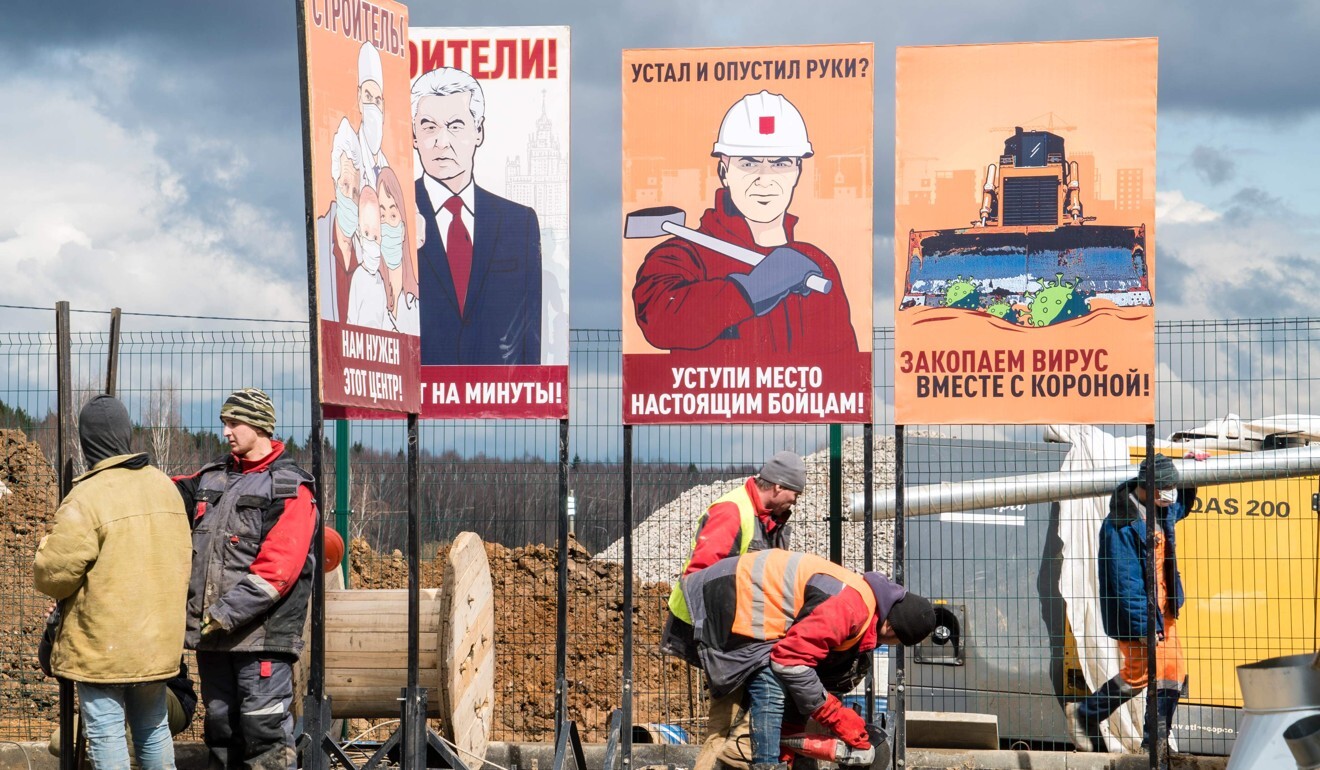
Russia yet to see peak in infections
President Vladimir Putin said Russia has slowed the outbreak of the coronavirus but warns the nation has yet to see the peak of infections.
Putin conferred with top medical officials in a Monday call and said the government would only move to ease a partial economic shutdown if medical experts rule it safe. He has ordered most businesses except essential industries shut through April 30, and most Russian regions have ordered rigid quarantine measures.
Moscow Mayor Sergei Sobyanin said the tight lockdown and broader screening in the capital have helped prevent an explosive influx of patients in grave condition and reduced the load on the health care system.
Moscow has accounted for nearly two thirds of the nation’s total of 47,121 cases, including 405 deaths.
Sweden claims success after keeping country open
Criticised for refusing to lock down, Sweden’s top health official says herd immunity is inevitable and took credit for the slowing of coronavirus numbers.
“According to our modellers, we are starting to see so many immune people in the population in Stockholm that it is starting to have an effect on the spread of the infection,” Anders Tegnell, who led the charge to keep Sweden open, told local media. “Our models point to some time in May.”
Despite social distancing guidelines from the World Health Organisation, Sweden has resisted lockdowns, instead keeping open schools, gyms, bars and restaurants and relying on citizens to caution themselves.
Tegnell’s comments echo thoughts about herd immunity, in which most of the population is infected with the assumption that those who survive will not be infected again, floated by British Prime Minister Boris Johnson. But Johnson eventually folded to the advice of health officials and shut down the United Kingdom, and the WHO has also insisted that there’s no evidence yet that coronavirus antibodies leave the infected immune.
So far, 14,385 people in Sweden have tested positive for coronavirus. Of those, 1,540 have died.
UAE tells Muslims to pray at home during Ramadan
Religious authorities in the United Arab Emirates said medical workers treating Covid-19 patients are exempt from fasting during Ramadan and urged Muslims not to congregate for prayers during the holy month expected to start this week.
The Emirates Fatwa Council said in a statement carried on state media late on Sunday that all healthy people are obliged to fast but medical workers on the frontline of the novel coronavirus pandemic need not do so “if they fear that fasting could lead to weakening their immunity or to losing their patients”.
It said Muslims should comply with physical distancing while praying during Ramadan and the Eid Al Fitr holiday that marks its end. The UAE has suspended prayer in all houses of worship including mosques as part of containment measures.
The UAE has recorded 6,781 infections with 41 deaths, the second highest count after Saudi Arabia in the six-nation Gulf Cooperation Council where the number of cases has steadily risen to surpass 26,600 with more than 160 deaths as countries ramp up testing.
Australian economists warn against easing curbs
More than 150 Australian economists on Monday warned the government against easing social distancing rules aimed at halting the spread of the new coronavirus even as the rate of infections slowed to a multi-week low.
Australia has so far avoided the high numbers of coronavirus casualties reported around the world after closing its borders and imposing restrictions on public movement. While the measures have slowed the growth in new infections to fewer than 40 new cases a day, the restrictions are expected to push unemployment to a 16-year high of about 10 per cent.
With growing calls to ease the restrictions, leading Australian economists issued an open letter to call on the government to prioritise containing the spread of coronavirus. “We cannot have a functioning economy unless we first comprehensively address the public health crisis,” the group of 157 economists from Australian universities wrote.
Prime Minister Scott Morrison last week said there would no easing of Australia’s restrictions for at least four weeks, and several state premiers on Monday urged the public to keep to the social distancing rules.
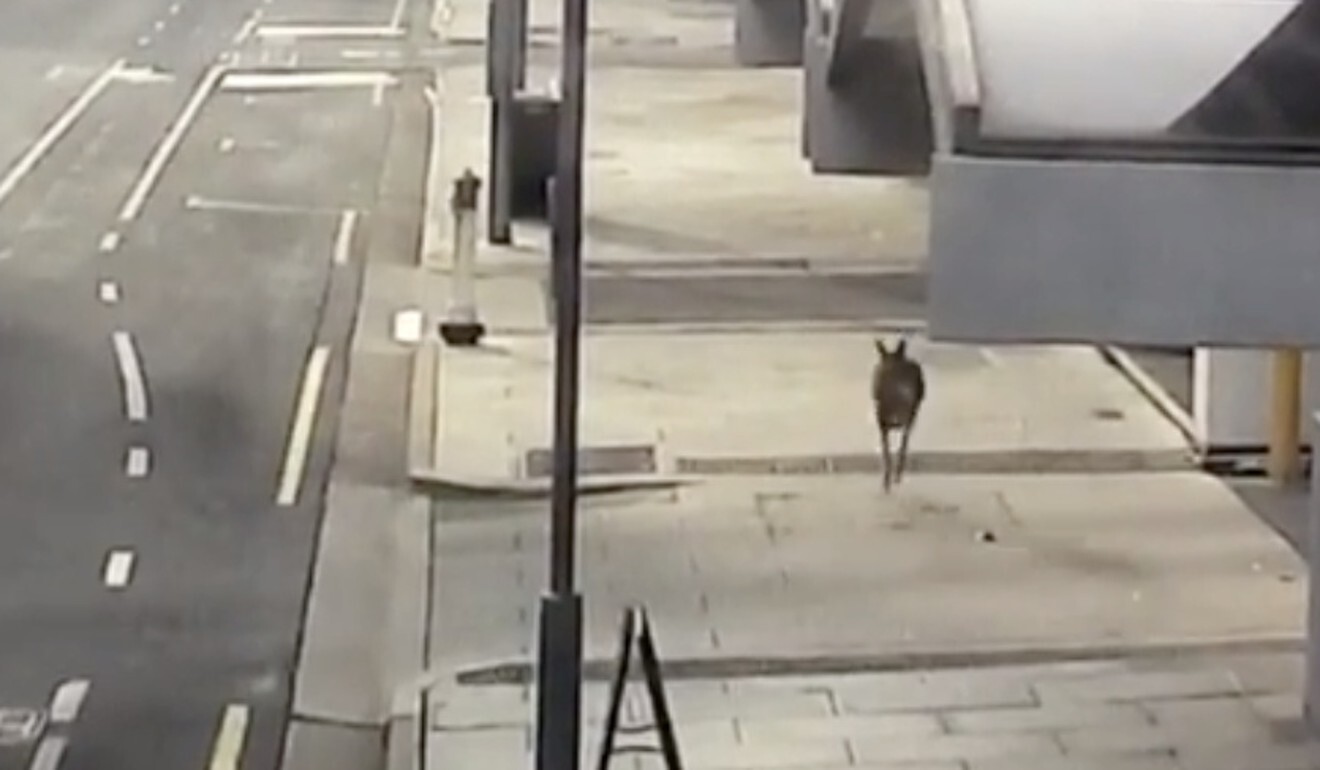
Meanwhile, a kangaroo was spotted hopping through the empty streets of Adelaide, as lockdowns lure wildlife into abandoned capitals around the world.
Police officers monitoring the city’s street cameras had “tracked a suspect wearing a grey fur coat hopping through the heart of the #adelaide CBD,” the state police department said in a social media post.
“It’s just unheard of, we sometimes spot kangaroos in the suburbs but never in the city,” a police media officer said. “Normally it’s bustling with cars but to have no vehicles – it’s quite eerie at the moment – there was only one vehicle which nearly collided but managed to miss it.”
Prince Philip praises medical workers
Queen Elizabeth’s husband has made a rare public statement praising those tackling the new coronavirus pandemic and keeping essential services running.
Prince Philip, who turns 99 in June, said he wanted to recognise the “vital and urgent” work of medical and science professionals. He also gave thanks to key workers including people working in food production, garbage collection, and postal and delivery services.
The royal, who retired from public duties in 2017, signed off simply with “Philip.”
Philip has been staying with the queen at Windsor Castle with reduced staff for their safety.
Japan expert ‘pessimistic’ Olympics can be held in 2021
A Japanese expert who has criticised the country’s response to the coronavirus warned on Monday that he is “pessimistic” that the postponed Olympics can be held even in 2021.
“To be honest with you I don’t think the Olympics is likely to be held next year,” said Kentaro Iwata, a professor of infectious diseases at Kobe University.
Japan and the International Olympic Committee (IOC) agreed last month to delay the Tokyo 2020 Games until July 2021, after pressure from athletes and sports federations.
But in recent days, as the coronavirus pandemic continues to spread worldwide, there have been questions about whether even a year-long delay will be sufficient.
“Holding (the) Olympics needs two conditions, one: controlling Covid-19 in Japan and (two) controlling Covid-19 everywhere, because you have to invite the athletes and the audience from all over the world,” Iwata said.
“Japan might be able to control this disease by next summer, I wish we could, but I don’t think that would happen everywhere on Earth, so in this regard I’m very pessimistic about holding the Olympic Games next summer.”
Iwata hit the headlines earlier this year for his public criticism of Japan’s handling of the coronavirus-wracked Diamond Princess cruise ship that docked off the country’s coast.
Japanese officials opted to carry out an on-ship quarantine, but more than 700 people on board ended up contracting the virus, and 13 died.
India sees biggest one-day spike as lockdown eased
India recorded its biggest single-day spike in coronavirus cases on Monday as the government eased one of the world’s strictest lockdowns to allow some manufacturing and agricultural activity to resume.
An additional 1,553 cases were reported over 24 hours, raising the national total past 17,000. At least 543 people have died from the respiratory disease.
The shelter-in-place orders imposed in India on March 24 halted all but essential services, sparking an exodus of migrant workers and people who survive on daily wages out of India’s cities and toward villages in rural areas.
Starting Monday, limited industry and farming were allowed to resume where employers could meet social distancing and hygiene norms, and migrant workers were allowed to travel within states to factories, farms and other work sites.
“In the event a group of migrants wish to return to their places of work within the state where they are presently located, they would be screened and those who are asymptomatic would be transported to their respective places of work,” India’s home ministry said in a letter to state governments.
Call for South African prisoners to be released
South Africa’s correctional services fired a verbal broadside on Monday after a prisoners’ rights group called for protests to demand the release of inmates to help curb coronavirus.
Golden Miles Bhudhu, who heads the South African Prisoners Organisation for Human Rights, said they called on prisoners to skip some meals in “a passive hunger strike” to demand that inmates be freed to minimise viral spread. It called for the release of low-risk prisoners such as those who are terminally ill, non-violent first-time offenders and prisoners aged over 60 years, among others.
“In crowded, unhygienic and filthy cells, the spread of this virus presents a very serious threat,” the group said. “Our prisons are not only overcrowded, they are chronically overcrowded and remain breeding grounds for the virus.”
But the government hit back, saying the organisation was “instigating inmates to revolt against the state” and it was “totally irresponsible and reckless”.
“The state will not simply open the gates for inmates to walk out. Such will be catastrophic for the country,” said correctional services spokesman, Singabakho Nxumalo. “Offenders have been removed from society for a reason.”
South Africa has around 160,000 inmates at 243 jails, according to official figures, and 99 inmates have contracted the virus. The country has a total of 3,158 infections, the highest in the continent, including 54 deaths.
Round the world cruise comes to an end
Some passengers from a luxury cruise ship that travelled the globe for 15 weeks while the new coronavirus spread on land have started to disembark in northeastern Spain.
Monday’s port-of-call in Barcelona marks the beginning of the end of the around-the-globe cruise of the Costa Deliziosa, owned by Italian company Costa Crociere.
The boat sailed the last five weeks with virtually no human contact with the outside world, and has no Covid-19 cases on board.
Hundreds of the boat’s 1,831 passengers, including 168 Spaniards, were expected to get off the boat in Spain and the rest were expected to do so in the next and last stop, in Genoa, Italy. The Deliziosa was originally due to return to Venice on April 26.
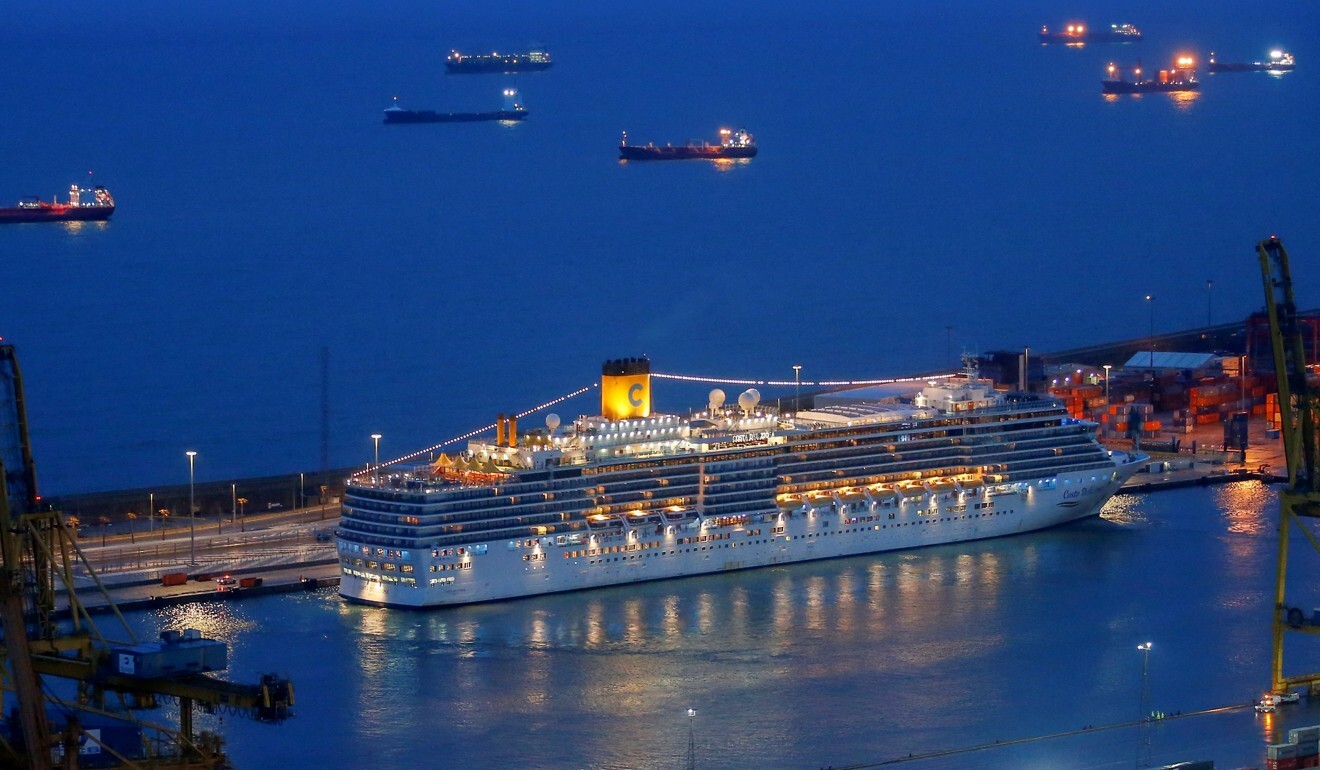
Unlike other cruise ships that suffered outbreaks and were often put in quarantine to protect port cities, the Deliziosa has been virtually a floating virus-free bubble, allowing the passengers to use the ship’s facilities and entertainments.
The ship set sail from Venice in early January and stopped making ports of call after leaving western Australia last month, except for technical refuelling stops.
Associated Press, Agence France-Presse, Bloomberg, Reuters